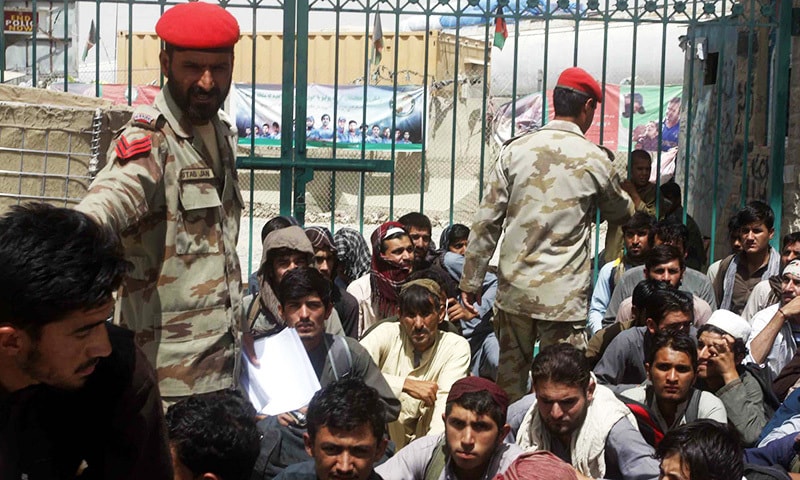ISLAMABAD: The federal cabinet on Friday granted a further three-month extension to the stay of registered Afghan refugees in the country, permitting them to live in Pakistan till March 31, 2017.
“The cabinet while deliberating on agenda item on Extension of the Proof of Registration (PoR) Cards and Tripartite Agreement in respect of Registered Afghan Refugees approved the extension till 31st March 2017,” the Prime Minister’s Office said in a statement after the meeting.
The government had earlier in June extended the stay of PoR card-holding Afghan refugees till Dec 31, 2016.
See: Leaving Pakistan, 'our second home'
The latest extension has, unlike in the past, come well ahead of the expiry of the deadline for repatriation of refugees. This is the third extension in the deadline since the government last year in the aftermath of the Army Public School tragedy decided to repatriate the remaining Afghan refugees by Dec 31, 2015. The deadline was first extended till June 30 and then till Dec 31, 2016.
It is estimated that some three million Afghan refugees are living in Pakistan, half of whom are unregistered.
“Adequate and concrete steps will be ensured for facilitation of Afghan refugees living in Pakistan,” Prime Minister Nawaz Sharif said at the cabinet meeting.
The latest extension will ease pressure on refugees planning to return home. The refugees had requested further extension in stay citing difficulties in wrapping up their businesses and leaving within the Dec 31, 2016 deadline.
Uncertainty about future, tightening of border controls, and security crackdown against foreigners living in Pakistan have already sped up the return process despite deteriorating security in Afghanistan due to increased attacks by Taliban and an aggravating economy. The main factor driving the accelerated process is, however, said to be the documentation requirement for visits to Afghanistan. Doubling of cash grant by the UNHCR for voluntary returnees from $200 to $400 per individual and Pakistani incentive of free wheat for the relocated camps for three years are some of the other factors.
According to UNHCR estimates, around 100,000 refugees returned to Afghanistan over the past couple of months, which is the highest number of returns since Taliban were ousted from power in the war-torn country.
Easing refugees concerns about harassment by law enforcement agencies, PM Sharif said: “We would not allow Afghan refugees living in Pakistan to be harassed in any way. They are our guests and their return plans would be decided in a way that does not create any negative impression in the minds of people living on both sides of the border.”
Besides, harassment by law enforcement agencies, there are reports about increased negative attitudes of the community towards refugees due to involvement of some of them in the crime and terrorism.
Mr Sharif, therefore, directed the Ministry of States and Frontier Regions to hold broad-based consultations with the leadership of mainstream political parties and Afghan representatives for addressing the concerns of Afghan refugees.
Published in Dawn September 10th, 2016














































